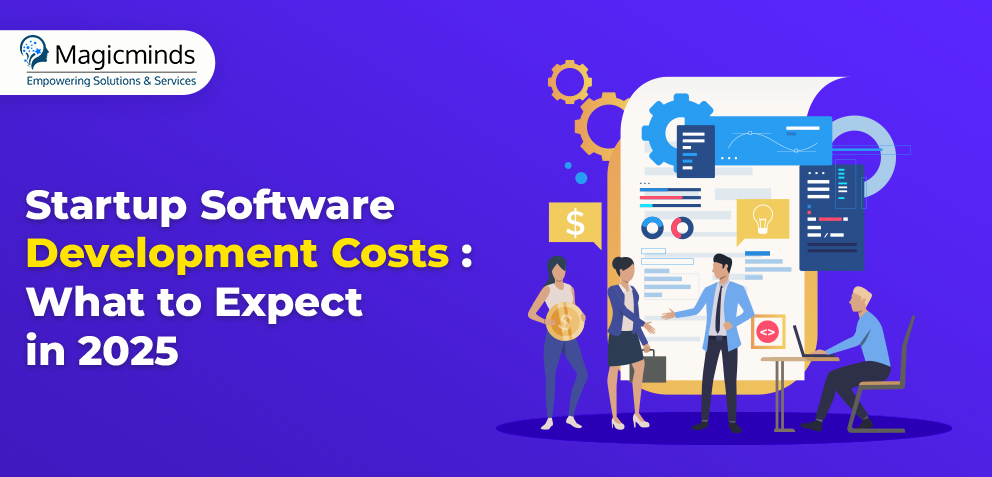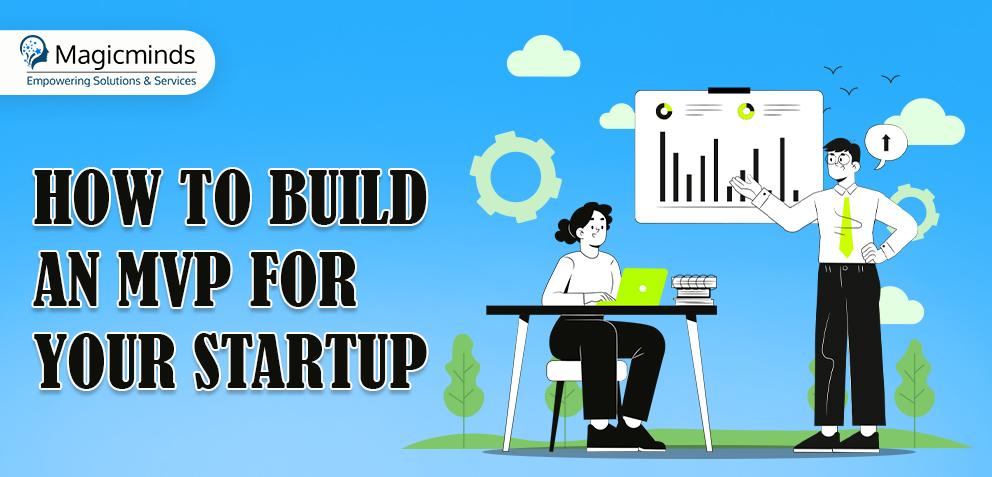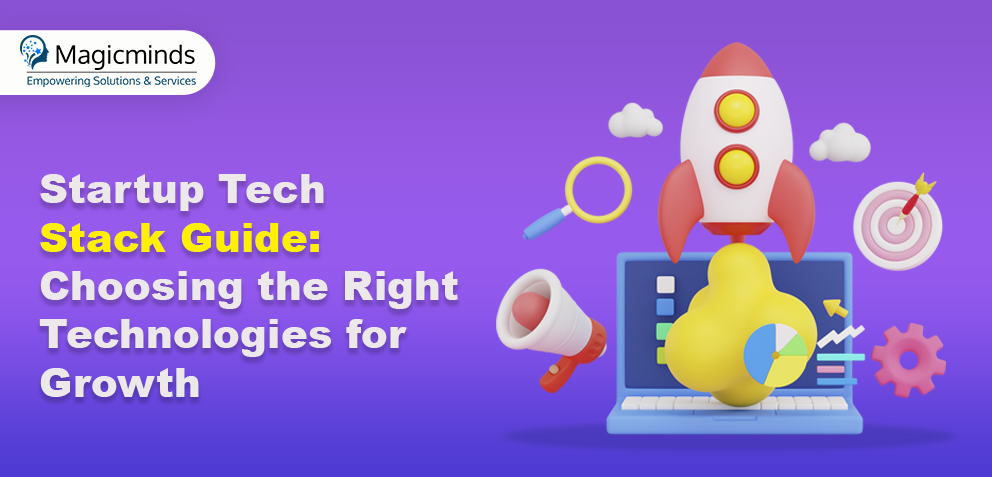Startup Software Development Costs: What to Expect in 2025

 Stay In-the-loop
Stay In-the-loop
Get fresh tech & marketing insights delivered right to your inbox.
Share this Article
Tags
Category
- .Net Developer
- Adtech
- Android App Development
- API
- App Store
- Artificial Intelligence
- Blockchain Development
- Chatbot Development
- CMS Development
- Cybersecurity
- Data Security
- Dedicated Developers
- Digital Marketing
- Ecommerce Development
- Edtech
- Fintech
- Flutter app development
- Full Stack Development
- Healthcare Tech
- Hybrid App Development
- iOS App Development
- IT Project Management
- JavaScript development
- Laravel Development
- Magento Development
- MEAN Stack Developer
- MERN Stack Developer
- Mobile App
- Mobile App Development
- Nodejs Development
- Progressive Web Application
- python development
- QA and testing
- Quality Engineering
- React Native
- SaaS
- SEO
- Shopify Development
- Software Development
- Software Outsourcing
- Staff Augmentation
- UI/UX Development
- Web analytics tools
- Wordpress Development
While new companies continue to innovate and change the face of technology, it is equally important for founders, CTOs, and investors to know the startup software development cost in 2025. As user expectations rise and technology advances, managing your finances is crucial for the success of your early-stage business. Let’s examine the factors that influence these costs, understand how they vary globally, and identify any hidden aspects that could potentially outsmart your competitors.
Focusing On Cost Efficiency: Scope, Technology, And Size Of The Team
When calculating your startup’s software development expenses in 2025, three primary elements determine your budget:
Scope And Level Of Effort Feature Requirements
The activities that are a part of building the application will have direct repercussions on your costs. A basic application where users can register and view their dashboards may cost somewhere around $30,000 and have around 500-800 hours of development. However, a platform that has full capabilities like complex AI chatbots and other features integrated in real time may take over 2000+ hours.
Industry research suggests that feature-rich applications could have a cost up to threefold compared of basic ones.
Technology Stack
Every technology has its implications. Well-known frameworks such as React or Flutter are economical because of cheaper market rates, but more innovative stacks (like machine learning with Python and blockchain integrations) require more skilled labor and come with high pay rates. In the United States, advanced stack developers will command anywhere from $150 per hour by 2025, while Indian developers will earn $30–$60.
Team Size and Structure
An agile team with 1-2 developers and a designer works on MVPs, while broader launches require product managers, backend and frontend developers, QA engineers, and sometimes even DevOps specialists. With larger teams, costs escalate rapidly: a five-person US team may charge $60,000−$120,000 a month, while the same team in India costs $15,000−$30,000.
Custom Software Development for Startups
Build, Launch, and Scale with Magicminds' Expertise.
MVP vs Full-Scale: Cost Estimates for 2025
Check out the cost estimates for 2025:
MVP (Minimum Viable Product) Cost
An MVP showcases the most basic features out of all the various options offered and thus serves as a testing product. Building one lets you learn at an accelerated pace. This is what you can expect in 2025:
- US MVP cost: $60,000-$150,000
- Europe MVP cost: $40,000-$100,000
- India MVP cost: $20,000-$50,000
These estimates are based on a core feature construction that lasts somewhere between three and six months.
Full Scale Product Launch
We expect the prices to be a little higher than expected once the product is fully initialized. For these advanced features, the scaling and security expectations differ per country, too.
- US full-scale cost: $200,000-$500,000+
- Europe full-scale cost: $120,000-$350,000
- India full-scale cost: $60,000-$150,000
Higher-order features and support from multiple countries allow higher scope and customization geared around the user.
Global Comparison: Cost by Region (India vs US vs Europe)
The effectiveness of a product can differ region by region depending on where it is created. Using these controls, this is what the startup software development cost will be in 2025:
| Region | Avg. Hourly Rate (USD) | MVP Cost Range | Full-Scale Cost Range |
| USA | $80–$150 | $60K–$150K | $200K–$ 500 K+ |
| Europe | $50–$100 | $40K–$100K | $120K–$350K |
| India | $30–$60 | $20K–$50K | $60K–$150K |
It’s mostly the labor rates that create the cost gap, but also project management, time-zone overlap, and communication overhead. Many US startups prefer a hybrid model where the core design is done in the US and the development is offshore.
Hidden Costs to Watch Out For
These expenses can be potentially “hidden,” and if overlooked, can completely derail a budget for first-time founders:
- Project Management: Effective project managers can save time and money over the long run, but their services can add 10-20% to your budget.
- Quality Assurance & Testing: This effort typically accounts for around 15-25% of development hours, but not spending on them can lead to expensive bugs post product launch.
- Third-Party Integrations: There are monthly or monthly-per-transaction fees associated with payment gateways, APIs, and SaaS tools.
- Maintenance & Updates: These services consume 15-20% of the investment made during the initial build, in addition to updates and upkeep annually.
- Legal & Compliance: GDPR, HIPAA, and SOC2 gaps depend on your industry, but compliance can add anywhere from $5,000 to $50,000+.
Magicminds’ Flexible Pricing Models
Choosing the right development partner is as important as the budget itself. At Magicminds, we believe in transparent, flexible pricing to fit your startup’s unique stage and ambition. Our models include:
- Fixed-Price Projects: Ideal for well-defined MVPs. Know your costs upfront.
- Dedicated Teams: Scale up or down as needed, paying monthly rates for full-time experts.
- Hybrid Engagement: Mix core US-based strategy with offshore execution for the best of both worlds.
We provide detailed cost breakdowns before you commit, ensuring there are no surprises along the way.
In Conclusion
Anticipating the startup software development service cost in 2025 requires careful consideration of features, technology, and team structure, while also keeping a close watch on hidden costs. The smartest founders invest time in scoping projects, comparing regional advantages, and choosing partners who offer both expertise and cost transparency. Are you prepared to receive a customized estimate for your innovative concept? Contact Magicminds for a free, detailed cost breakdown and expert guidance on how to maximize your startup budget.
Understanding these cost dynamics puts you at the forefront. But the world of software development is constantly evolving—and so should your knowledge and strategies.
While new companies continue to innovate and change the face of technology, it is equally important for founders, CTOs, and investors to know the startup software development cost in 2025. As user expectations rise and technology advances, managing your finances is crucial for the success of your early-stage business. Let’s examine the factors that influence these costs, understand how they vary globally, and identify any hidden aspects that could potentially outsmart your competitors.
Focusing On Cost Efficiency: Scope, Technology, And Size Of The Team
When calculating your startup’s software development expenses in 2025, three primary elements determine your budget:
Scope And Level Of Effort Feature Requirements
The activities that are a part of building the application will have direct repercussions on your costs. A basic application where users can register and view their dashboards may cost somewhere around $30,000 and have around 500-800 hours of development. However, a platform that has full capabilities like complex AI chatbots and other features integrated in real time may take over 2000+ hours.
Industry research suggests that feature-rich applications could have a cost up to threefold compared of basic ones.
Technology Stack
Every technology has its implications. Well-known frameworks such as React or Flutter are economical because of cheaper market rates, but more innovative stacks (like machine learning with Python and blockchain integrations) require more skilled labor and come with high pay rates. In the United States, advanced stack developers will command anywhere from $150 per hour by 2025, while Indian developers will earn $30–$60.
Team Size and Structure
An agile team with 1-2 developers and a designer works on MVPs, while broader launches require product managers, backend and frontend developers, QA engineers, and sometimes even DevOps specialists. With larger teams, costs escalate rapidly: a five-person US team may charge $60,000−$120,000 a month, while the same team in India costs $15,000−$30,000.
MVP vs Full-Scale: Cost Estimates for 2025
Check out the cost estimates for 2025:
MVP (Minimum Viable Product) Cost
An MVP showcases the most basic features out of all the various options offered and thus serves as a testing product. Building one lets you learn at an accelerated pace. This is what you can expect in 2025:
- US MVP cost: $60,000-$150,000
- Europe MVP cost: $40,000-$100,000
- India MVP cost: $20,000-$50,000
These estimates are based on a core feature construction that lasts somewhere between three and six months.
Full Scale Product Launch
We expect the prices to be a little higher than expected once the product is fully initialized. For these advanced features, the scaling and security expectations differ per country, too.
- US full-scale cost: $200,000-$500,000+
- Europe full-scale cost: $120,000-$350,000
- India full-scale cost: $60,000-$150,000
Higher-order features and support from multiple countries allow higher scope and customization geared around the user.
Global Comparison: Cost by Region (India vs US vs Europe)
The effectiveness of a product can differ region by region depending on where it is created. Using these controls, this is what the startup software development cost will be in 2025:
| Region | Avg. Hourly Rate (USD) | MVP Cost Range | Full-Scale Cost Range |
| USA | $80–$150 | $60K–$150K | $200K–$ 500 K+ |
| Europe | $50–$100 | $40K–$100K | $120K–$350K |
| India | $30–$60 | $20K–$50K | $60K–$150K |
It’s mostly the labor rates that create the cost gap, but also project management, time-zone overlap, and communication overhead. Many US startups prefer a hybrid model where the core design is done in the US and the development is offshore.
Hidden Costs to Watch Out For
These expenses can be potentially “hidden,” and if overlooked, can completely derail a budget for first-time founders:
- Project Management: Effective project managers can save time and money over the long run, but their services can add 10-20% to your budget.
- Quality Assurance & Testing: This effort typically accounts for around 15-25% of development hours, but not spending on them can lead to expensive bugs post product launch.
- Third-Party Integrations: There are monthly or monthly-per-transaction fees associated with payment gateways, APIs, and SaaS tools.
- Maintenance & Updates: These services consume 15-20% of the investment made during the initial build, in addition to updates and upkeep annually.
- Legal & Compliance: GDPR, HIPAA, and SOC2 gaps depend on your industry, but compliance can add anywhere from $5,000 to $50,000+.
Magicminds’ Flexible Pricing Models
Choosing the right development partner is as important as the budget itself. At Magicminds, we believe in transparent, flexible pricing to fit your startup’s unique stage and ambition. Our models include:
- Fixed-Price Projects: Ideal for well-defined MVPs. Know your costs upfront.
- Dedicated Teams: Scale up or down as needed, paying monthly rates for full-time experts.
- Hybrid Engagement: Mix core US-based strategy with offshore execution for the best of both worlds.
We provide detailed cost breakdowns before you commit, ensuring there are no surprises along the way.
In Conclusion
Anticipating the startup software development service cost in 2025 requires careful consideration of features, technology, and team structure, while also keeping a close watch on hidden costs. The smartest founders invest time in scoping projects, comparing regional advantages, and choosing partners who offer both expertise and cost transparency. Are you prepared to receive a customized estimate for your innovative concept? Contact Magicminds for a free, detailed cost breakdown and expert guidance on how to maximize your startup budget.
Understanding these cost dynamics puts you at the forefront. But the world of software development is constantly evolving—and so should your knowledge and strategies.


